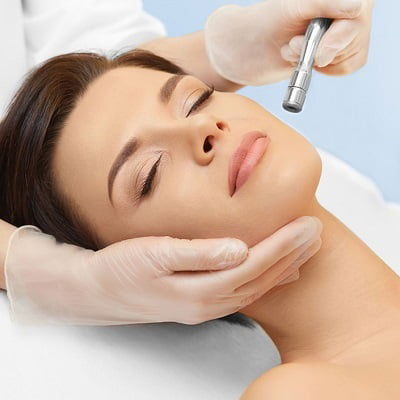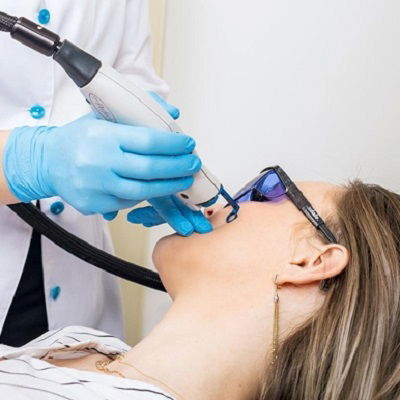Benefits of Laser Skin Resurfacing for Your Skin Health
Laser Skin Resurfacing is a cutting-edge dermatological treatment designed to improve skin texture, tone, and overall appearance. This non-invasive procedure uses laser technology to remove damaged outer layers of skin, stimulating collagen production and promoting cell regeneration. Whether you're dealing with fine lines, wrinkles, acne scars, or uneven pigmentation, laser skin resurfacing can help restore a youthful and radiant complexion.

How Laser Skin Resurfacing Works
The treatment involves directing concentrated beams of light onto the skin, precisely removing layers while encouraging natural healing. Depending on your skin concerns, different laser types can be used, including ablative and non-ablative lasers. Ablative lasers remove thin skin layers for deeper rejuvenation, while non-ablative lasers work beneath the surface to enhance collagen production with minimal downtime.
Key Benefits of Laser Skin Resurfacing
1. Reduction of Fine Lines and Wrinkles
Laser skin resurfacing effectively minimizes the appearance of fine lines and wrinkles, particularly around the eyes and mouth. By boosting collagen production, the treatment smooths out skin texture, giving it a firmer and more youthful look.
2. Improved Skin Tone and Texture
Uneven skin tone, sunspots, and rough texture are common issues that laser skin resurfacing can address. The laser energy breaks down pigmented areas and resurfaces the skin, resulting in a more balanced complexion and a softer feel.
3. Acne Scar Reduction
For those struggling with acne scars, laser skin resurfacing offers a powerful solution by targeting scar tissue and encouraging new, healthy skin growth. Over time, scars become less noticeable, and the skin gains a smoother texture.
4. Minimized Pore Size
Enlarged pores can make the skin appear rough and uneven. This treatment helps tighten pores by stimulating collagen, resulting in a more refined and even surface.
5. Enhanced Collagen Production
Collagen is a crucial protein responsible for skin elasticity and firmness. Laser skin resurfacing encourages natural collagen renewal, leading to long-term improvements in skin health and resilience.
6. Hyperpigmentation and Sun Damage Treatment
Dark spots, melasma, and sun-induced pigmentation can be significantly reduced with laser therapy. The targeted energy helps break down excess melanin, promoting a more even skin tone.
7. Non-Invasive with Minimal Downtime
Compared to surgical procedures, laser skin resurfacing is non-invasive and requires minimal recovery time. While redness and mild irritation may occur, most individuals can resume daily activities within a few days, depending on the laser type used.
What to Expect During and After Treatment
During the session, a dermatologist or trained professional will cleanse your skin and apply the laser in precise motions. You may experience a warming sensation, but numbing creams or cooling techniques help minimize discomfort. Post-treatment, following proper aftercare is crucial for optimal healing. Hydration, sun protection, and gentle skincare products will aid in a smooth recovery.
Who Is a Good Candidate for Laser Skin Resurfacing?
This treatment is ideal for individuals with concerns such as wrinkles, scars, hyperpigmentation, and overall skin dullness. However, those with active acne, extremely sensitive skin, or certain medical conditions should consult a dermatologist to determine suitability.
How Many Sessions Are Needed?
The number of sessions varies based on skin type, concerns, and the laser used. While some people see noticeable results after one session, others may require multiple treatments for maximum benefits. A professional consultation will help determine the best treatment plan.
Precautions and Aftercare Tips
- Avoid direct sun exposure before and after the procedure
- Use a high-quality sunscreen with SPF 30 or higher
- Keep the skin moisturized to support healing
- Follow the dermatologist’s instructions regarding skincare and product usage
- Avoid harsh exfoliants or strong chemical treatments until fully healed

Why Choose Laser Skin Resurfacing for Healthy Skin?
Incorporating laser skin resurfacing into your skincare routine offers long-term benefits beyond surface-level improvements. By addressing deep skin concerns and stimulating collagen, this treatment provides lasting radiance and youthful-looking skin. If you're looking for a non-invasive yet highly effective way to enhance your skin health, laser skin resurfacing is an excellent choice.
Final Thoughts
Laser skin resurfacing is a revolutionary approach to achieving smoother, firmer, and healthier skin. Whether you're targeting aging signs, scarring, or uneven skin tone, this advanced treatment delivers noticeable and lasting results. Prioritize professional consultation to customize the procedure to your skin’s needs and experience the transformative effects of laser technology.
